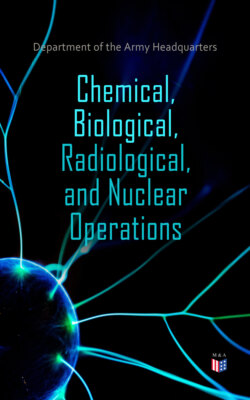Читать книгу Chemical, Biological, Radiological, and Nuclear Operations - Department of the Army Headquarters - Страница 40
На сайте Литреса книга снята с продажи.
1-31. Contact with inhabitants.
ОглавлениеTable of Contents
a. Whether a military commander be stationed at a headquarters in a metropolis or assigned to the smallest outpost, he must necessarily come into contact with MILITARY—CIVIL RELATIONSHIP the civilian population. By “contact” in this case is implied intercourse in daily life. The transaction of daily routine involves the association with the civilian element, even in the most tranquil territory. The purchase of fresh provisions, fuel, and other necessities of camp life involve the relationships with merchants, bankers, those in charge of public utilities, and many others. In relations with these persons, whether they be business or social, a superiority complex on the part of the military commander is unproductive of cooperation. The inhabitants are usually mindful of the fact that we are there to assist them, to cooperate with them in so doing, and while dignity in such relationship should always obtain, the conduct of the military authority should not be such as to indicate an attitude of superiority.
b. Association with civilians may be other than business or social. The same daily occurrences that take place in the United States between members of the naval forces and our own police and civilian population frequently take place on foreign soil. Damage to private property by the military forces is frequently the cause of complaints by members of the civilian population. Dealings with civilians making claims for damages incurred through the conduct of our personnel should be as equitable as the facts warrant. Even where the responsibility rests with the United States, the settlement of such claims is necessarily protracted by the required reference to the Navy Department, and the lack of facilities through which to afford prompt redress is oftentimes the cause of bad feelings. If the military commander were supplied with a fund to be used for the prompt adjustment of limited claims, the foregoing condition might be materially improved. However, under existing laws and regulations the amicable adjustment of matters involving injury and damage to the civilian population and their property calls for the highest degree of tact and sound judgment.
c. Cordial relationship between our forces and the civilian population is best maintained by engendering the spirit of good will. As previously stated, a mutual feeling of dislike and aversion to association may exist between members of' rival political parties. Conservatives and liberals, or by whatever label they may be known, are frequently prone to remain “die hards” when their political candidate is unsuccessful at the polls. It is, therefore, highly important for a military commander to ascertain the party affiliation of the persons with whom he comes into contact. The homely advice: “Don’t dabble in politics” is wise, and military authorities should scrupulously avoid discussing the subject.
d. Akin to politics is the subject of religion. The people of many countries take their religion as seriously as their politics. Consequently members of the United States forces should avoid any attitude that tends to indicate criticism or lack of respect for the religious beliefs and practices observed by the native inhabitants.
e. Relations between our military forces and the civilians might easily be disturbed if the former were to get into altercations with the public press. Freedom of speech is another liberty of which the inhabitants of many countries are not only proud, but jealous. Editors of the local newspapers are not always averse to criticizing the actions of troops other than their own. Nothing can be gained by the marine commander in jumping into print and replying to such newspaper articles, other than possibly starting a controversy which may make his further retention in that locality undesirable. When a matter is so published and it is considered detrimental, the subordinate marine commander should bring it to the attention of his immediate superior for necessary action by higher authority.
f. Every endeavor should be made to assure the civilian population of the friendliness of our forces. No effort should be spared to demonstrate the advantage of law and order and to secure their friendly cooperation. All ranks should be kept mindful of the mission to be accomplished, the necessity for adhering to the policy of the United States and of observing the law of nations.
g. Foreign nationals are often the underlying cause of intervention; almost invariably they are present in the country during the occupation. Generally their concern is for the security of their lives and property; sometimes they have an exaggerated opinion of their importance and influence. Generally the condition of political unrest does not react directly against foreigners, and it often happens that the foreign resident does not consider himself in any danger until he reads of it in a foreign newspaper, whereupon his imagination becomes active. Foreign cooperation may at times be a greater obstacle to success than the foreign mercenaries in a revolutionary party, when, for equally unworthy purposes, they render aid openly or secretly to the revolutionists in order to assure themselves of the protection or favor of any new government. Any discontented faction of natives can usually secure the sympathy or support 'from some group of investors or speculators who think they can further their own interests or secure valuable concessions by promoting a revolution. In any event, in dealing with these corporations and in receiving reports from them, it may often be wise to scrutinize their actions carefully to determine if they have any ulterior motives. In interventions, the United States accords equal attention to the security of life and property of all foreign residents.
